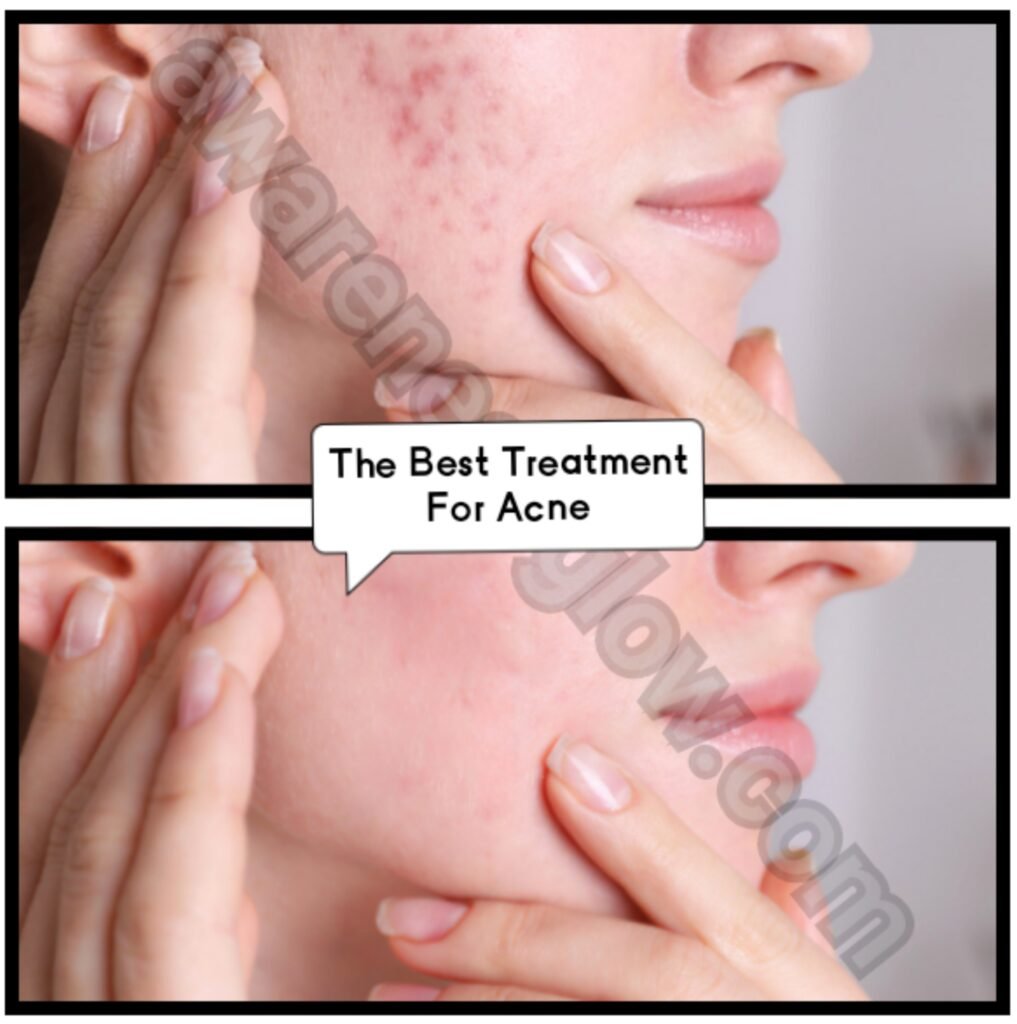
The Best Treatment For Acne
Introduction;
Your hair follicles clog with dead skin cells and oil, leading to acne, which results in pimples, blackheads, or whiteheads. Although it affects people of all ages, teenagers are most commonly affected by acne. Although there are effective acne treatments, it can sometimes persist.
Which foods are responsible for acne?
It is a frequent query, and new research indicates that breakouts may be caused by chocolate’s sugar content rather than its cocoa content. Certain foods cause breakouts, even though no food has been shown to cause pimples directly.High-glycaemic, sugar-laden processed foods can trigger a series of events leading to an outbreak of acne.
Some foods that may trigger breakouts are:
- Deep-fried chips
- Pastries,Crackers, and Cookies
- Pasta White bread Soft Drink Juices
What is the worst age for acne?
Teenage years:
The Best Period For Acne most people experience peak acne during puberty, usually between 12 and 18. Significant hormonal changes in the body occur during this time, which causes the Skin to produce more oil. This extra oil bacteria, and dead skin cells can clog pores and cause acne breakouts.
Stress and Lifestyle Factors:
Acne severity can also be influenced by lifestyle factors and hormonal influences. The following factors can make acne symptoms worse: stress, sleep deprivation, poor diet, and some medications. The condition may worsen due to environmental factors like humidity and pollution, which can cause inflammation and clogged pores.
Does drinking water cure acne?
Improved Skin Healing:
Adequately hydrated Skin tends to heal more quickly than Skin that is not. Drinking enough water is essential for healing acne lesions and avoiding scarring, aiding in regenerating and repairing skin cells. Water can help overall skin health and healing processes, even though it might not be a miracle treatment for acne alone.
Detoxification and Eliminating Toxins:
Water’s ability to aid in detoxification is one of the main ways it may help skin prone to acne. Having enough water in your body aids in the removal of waste products and toxins, including those that may exacerbate acne. Water helps the body eliminate waste through urine, which can positively affect the Skin by supporting healthy kidney function.
How are pimples and acne different from one another?
Hair follicles clogged with oil and dead skin cells result in acne, a chronic inflammatory skin condition. It frequently appears on the face, chest, back, and shoulders as cysts, blackheads, whiteheads, and pimples. Both teenagers and adults can be affected by acne, which can range from mild to severe and last for years.
- Genetics:
A family history is associated with increased risk of developing acne.
- Hormonal shifts:
Changes in hormone levels, such as those brought on by menstruation, puberty, pregnancy, or hormonal disorders, can cause or worsen acne.
- Bacteria:
A type of bacteria that lives on the Skin called Propionibacterium acnes can grow in clogged pores and cause inflammation and acne breakouts.
How can I get rid of my acne?
Consultation with a Dermatologist:
If over-the-counter remedies haven’t been able to control your acne, you should consider seeing a dermatologist. Depending on your unique skin type and concerns, they can recommend oral or topical medications.
Limit dairy and high-glycemic foods:
Research indicates that some people may experience worsening acne when they consume dairy products or high-glycemic foods like sugary snacks and refined carbs. Consider reducing your intake and observing your Skin’s reaction.
Consume Foods High in Antioxidants:
Consume a diet rich in fruits, vegetables, and antioxidants, like nuts, leafy greens, and berries, to help reduce inflammation and promote healthy Skin.
